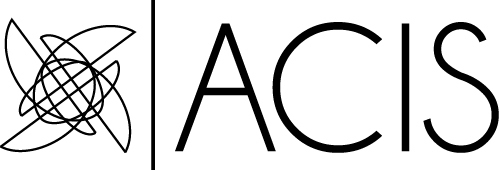
As a literature person who has found herself treading into regional immigration history, I have split my time at ACIS conferences between literature panels and history panels for the past few years. This year was no different, and the conference theme, “The Worlding of Irish Studies,” offered choices for both disciplines.
The University of Notre Dame’s campus was an inspirational setting for the 2016 national conference, and the layout of the McKenna Conference Center made navigating between classrooms and coffee breaks seamless. The center’s gathering area is circled by two floors of classrooms and an auditorium. The tables of books and information on various Irish Studies programs lined the walls between classroom doors.
I attended five panels on Irish immigration and Irish American agitation in specific regions of the US as a way to deepen my understanding not only of the various kinds of Irish experiences, but also to broaden my list of primary historical resources for my own research. Kerby Miller’s access to and analysis of a nineteenth-century immigrant diary stands as a highlight, along with David Brundage’s paper on the Fenian attack of Manitoba and Matt Horton’s exploration of the racial implications of the Fenian voyage to free Irish political prisoners from Fremantle Jail in Australia. I heard interesting papers on regional immigrant experiences on the Illinois and Michigan canals and in neighborhoods in Chicago, Melbourne, and Philadelphia. Mary Kelly’s paper on the short-lived Protestant Friends of Irish Freedom offered a different facet to consider in nineteenth-century Irish American nationalism—one that crossed religious lines. (?).
Not surprising, the 1916 Easter Rising was another focus of the conference. Thoughtful plenary addresses by Mary Daly and Thomas Bartlett surveyed the commemorations of 1916 over the past 100 years and the Napoleonic influence on Irish revolts, including the Easter Rising. An interesting panel on 1916 and Memory included Ed Shevlin’s paper about an American student at St. Enda’s who found himself in the GPO on April 24, 1916. Gavin Foster’s presentation looked further along in the Revolutionary years at oral histories of and monuments to the Civil War in Kerry.
The six fiction panels I attended offered wonderfully varied and interrelated studies of home and identity. Papers on postcolonial and post-Tiger literature dominated the paper topics, prominently featuring the work of Colm Tóibín, Colum McCann, and Tana French. The Tana French panel with Shirley Peterson and Margot Backus was especially dynamic, with a nearly-full room of French enthusiasts. Both papers offered insightful commentaries on global elements in her fiction. The discussion afterward encompassed all of French’s fiction and easily filled the hour and a half. In other panels, Denell Downum considered Irish characters in global feminist literature, and Shaun O’Connell discussed the search for home in a range of Irish fiction. Two poetry readings from Wake Forest and ACIS poets balanced out the keynotes from historians by offering a sampling of contemporary literary voices.
The conference ran through Sunday morning. I was impressed with both the cooperative attitudes of those presenting and with the number of people still attending these panels. I attended the “Catholicism and Irish Studies” panel in the last time slot, and it was well worth the wait. Tim Madigan opened with a fine presentation on the clergy in Strumpet City, and Stephen Whittaker followed with a theological explication of James Joyce’s “The Sisters.” Cóilín Owens tied both presentations together in terms of Catholic history with his own analysis of Joyce’s “Grace.” Both Whittaker and Owens recognized Joyce’s use of iconography from The Book of Kells in their analyses. The group was privileged to hear Owens’s brilliant discussion of “The Dead” as a coda to the both Dubliners and to the panel itself. He brought Plunkett and Joyce into conversation as offering Post Vatican II and medieval approaches to Catholicism.
Following this panel, I was inspired to conclude my ACIS journey with a walk up to Notre Dame’s Basilica, catching the tail end of an 11:45 mass service on an April day where the snow was general all over South Bend.
